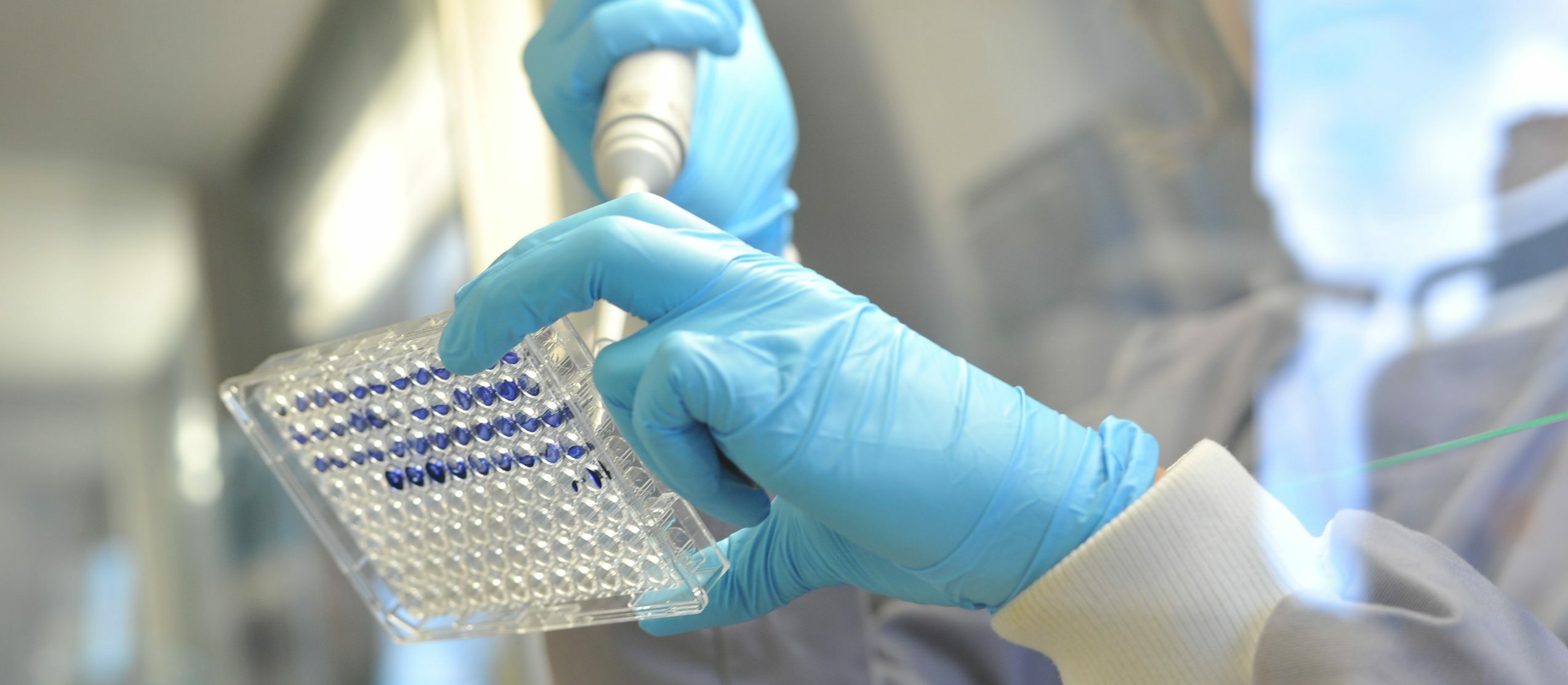
11 Jan 2019 Research
Lymphoma: Understanding relapse and treatment resistance
What is this research looking at?
Our immune system is remarkable. It is made up of many different types of immune cells that work together to protect the body from infection by pathogens such as bacteria, viruses and parasites.
We are investigating what happens when a certain type of cell in the immune system, known as B cells, starts growing out of control and develops into blood cancers such as leukaemia, lymphoma and myeloma.
We want to know what happens when B cells mature normally from precursor cells in the bone marrow and discover what has gone wrong when they turn into cancer cells instead.
Considerable success has been achieved in the treatment of lymphoma. However, a significant unmet need remains: roughly 40% of patients either do not respond to treatment or the condition recurs after treatment. Currently, our ability to predict which patients will fail treatment is poor.
By taking a detailed look at B cells as they develop and specialise, we can spot small groups of dangerous cells that are particularly likely to turn into cancer and identify the genetic faults that drive B cells to grow out of control.
We are using our knowledge to create new models for the development of B cells and blood cancers in the lab, so we can find new ways to treat or even prevent these deadly diseases.
Our research uses a model of lymphoma to test the response to treatments and development of resistance. A main advantage of the model is that we can interrogate these questions on a well-defined scenario and can perform iterative tests and predictions. Further, the model generated in this project will allow initial testing of novel treatments.
What could this mean for people with leukaemia?
This research could inform the medical decision of when to use combination and novel therapies for patients with a higher probability of developing resistance to standard treatment, alongside bringing safer treatments to patients.
Official project title: Development of a model system to study diffuse large B cell lymphoma clonal evolution
Related posts
8 September 2022
Statement from Leukaemia UK on the death of Her Majesty Queen Elizabeth II
On behalf of the Leukaemia UK team, Chair of Trustees, Chris Corbin OBE, has made the following statement: “We are extremely saddened to hear the news of the death of…
3 February 2023
Team Bodhi goes viral with #PantsToLeukaemia campaign
A whole host of celebrities and members of the public are posing with their pants on their head for a new campaign, to show solidarity for a little boy with…
20 October 2023
Emerging leaders accolade for former Leukaemia UK John Goldman Fellows
Former Leukaemia UK John Goldman Fellows, Dr Matthew Blunt, University of Southampton and Dr Konstantinos Tzelepis, University of Cambridge have been recognised as ‘Emerging Leaders in Leukaemia’ by the major…
17 September 2024
The food industry’s great and good come together to celebrate 25 years of Who’s Cooking Dinner? and raise over £280,000 for leukaemia research.
London’s hottest charity culinary event, Who’s Cooking Dinner?, celebrated its 25th anniversary at The Dorchester on Monday (16th September). It was an event to remember with chefs including Tom Kerridge,…